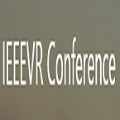Virtual Reality (VR) provides new possibilities for modern knowledge work. However, the potential advantages of virtual work environments can only be used if it is feasible to work in them for an extended period of time. Until now, there are limited studies of long-term effects when working in VR. This paper addresses the need for understanding such long-term effects. Specifically, we report on a comparative study (n=16), in which participants were working in VR for an entire week -- for five days, eight hours each day -- as well as in a baseline physical desktop environment. This study aims to quantify the effects of exchanging a desktop-based work environment with a VR-based environment. Hence, during this study, we do not present the participants with the best possible VR system but rather a setup delivering a comparable experience to working in the physical desktop environment. The study reveals that, as expected, VR results in significantly worse ratings across most measures. Among other results, we found concerning levels of simulator sickness, below average usability ratings and two participants dropped out on the first day using VR, due to migraine, nausea and anxiety. Nevertheless, there is some indication that participants gradually overcame negative first impressions and initial discomfort. Overall, this study helps lay the groundwork for subsequent research, by clearly highlighting current shortcomings and identifying opportunities for improving the experience of working in VR.
翻译:虚拟现实(VR)为现代知识工作提供了新的可能性。然而,虚拟工作环境的潜在优势只有在能够长期工作的情况下才能被利用,因此,到目前为止,在VR工作时,对长期影响的研究有限。本文讨论了了解这种长期影响的必要性。具体地说,我们报告一项比较研究(n=16),参与者在整个VR工作一周 -- -- 为期五天,每天8小时 -- -- 以及基线物理桌面环境。这项研究的目的是量化以VR为基础的环境交换基于桌面的工作环境的影响。因此,在这项研究期间,我们没有向参与者介绍尽可能最佳的VR系统,而是为在物理桌面环境中工作提供类似经验的设置。研究显示,正如预期的那样,VR公司在大多数措施中都得到更差的评分。我们发现,模拟疾病的水平低于平均使用率评分,还有两名参与者在第一天就放弃了VR,因为初步的悬浮、令人叹息和焦虑,因此,我们没有向参与者介绍尽可能最佳的VR系统,而是为今后的研究提供类似的经验。但是,通过初步的学习和焦虑而逐渐地展示这些研究的机会。



